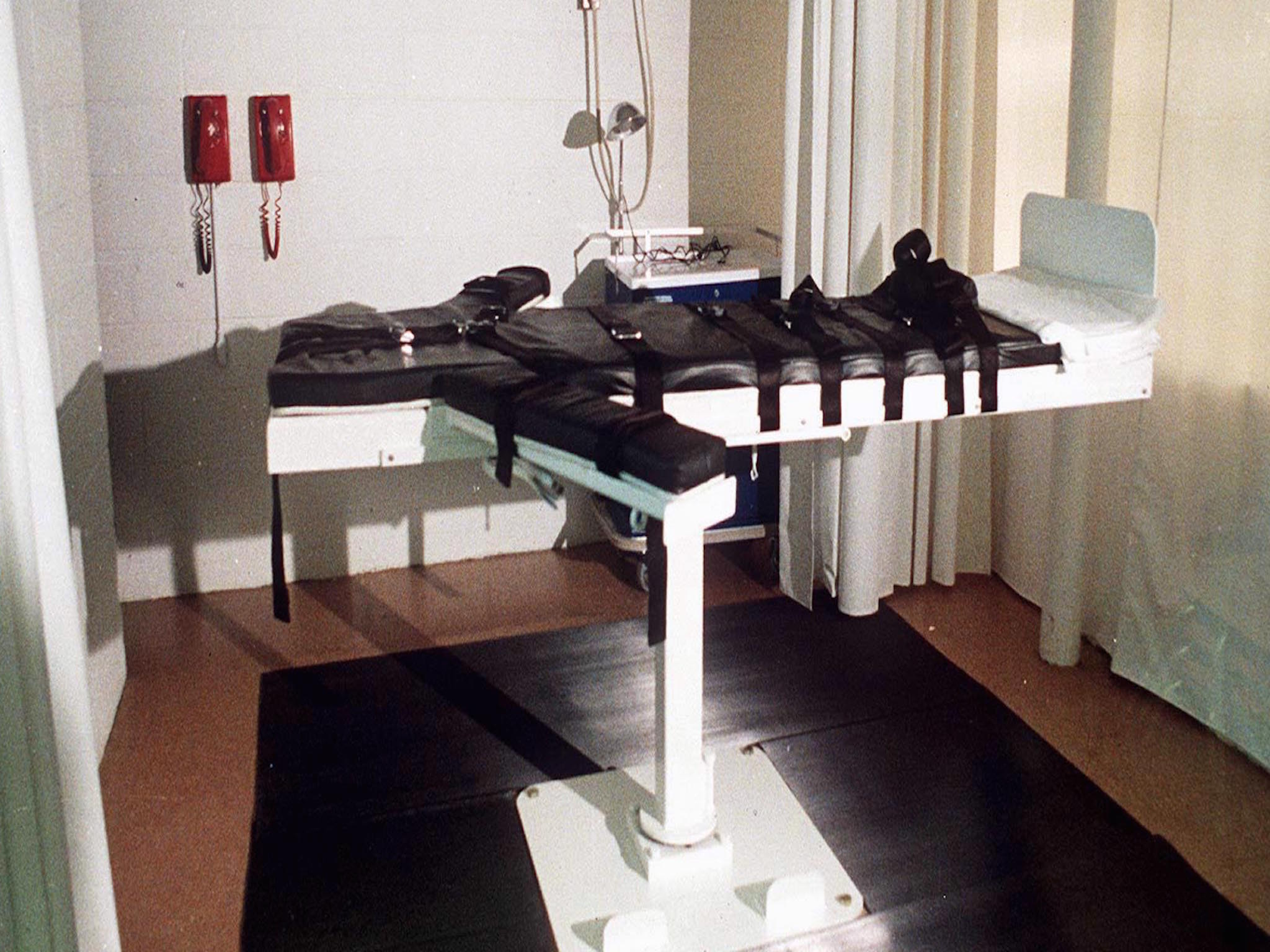Pfizer blocks its products from use in lethal injections - ending last open-market source of execution drugs
The company said it wanted to enhance and save the lives of people

Your support helps us to tell the story
From reproductive rights to climate change to Big Tech, The Independent is on the ground when the story is developing. Whether it's investigating the financials of Elon Musk's pro-Trump PAC or producing our latest documentary, 'The A Word', which shines a light on the American women fighting for reproductive rights, we know how important it is to parse out the facts from the messaging.
At such a critical moment in US history, we need reporters on the ground. Your donation allows us to keep sending journalists to speak to both sides of the story.
The Independent is trusted by Americans across the entire political spectrum. And unlike many other quality news outlets, we choose not to lock Americans out of our reporting and analysis with paywalls. We believe quality journalism should be available to everyone, paid for by those who can afford it.
Your support makes all the difference.The American death penalty is fading fast.
On Friday, pharmaceutical giant Pfizer announced that it would not longer permit its products to be used in lethal injections – a move that shuts off the final remaining source of approved chemicals for state executions.
Campaigners against the death penalty said the move means that, unless a state has stockpiled supplies of lethal compounds, authorities will have to seek illicit sources or else adopt a different method of execution, such as the electric chair or firing squad.

“This is great news,” Maya Foa of the London-based Reprieve, told The Independent. “This means that all FDA-approved suppliers have said they do not want their medicines being used for executions. They’re saying ‘we don’t want you do to this anymore’.”
The decision by the pharmaceutical giant was first revealed by the New York Times. In a statement, the company said: “Pfizer makes its products to enhance and save the lives of the patients we serve and strongly objects to the use of its products as lethal injections for capital punishment.”
Pfizer said it would restrict the sale to selected wholesalers of seven products that could be used in executions. The distributors must certify that they will not resell the drugs to corrections departments, and will be closely monitored.
Even while opposition to the death penalty has grown, a number of US states have sought to obtain lethal chemicals from third parties or else from suppliers overseas, who are not approved by the Food and Drug Administration. Some have been forced to delay executions, while others have approved alternative methods, including the firing squad, the electric chair and the gas chamber.
Others have bought drugs from so-called compounding pharmacies, which operate without normal FDA oversight.
For many years, execution by lethal injection usually involved a combination of three drugs – an anaesthetic, a paralytic and thirdly potassium chloride, which stops the heart.
For a long time, the anaesthetic of choice was sodium thiopental. But after a US manufacturer halted production of the drug in 2009, states that carried out executions sought to obtain it elsewhere.
That supply was halted by the efforts of campaigners opposed to the death penalty, leaving many US states scrambling to find an alternative.
States such as Florida and Oklahoma settled on midazolam, despite campaigners pointing to several botched executions using the drug as evidence of its unsuitability.
Charles Warner took 18 minutes to die when he was put to death in January 2015 and when asked to give his last words said that the needle inserted hurt like acid.
“My body is on fire,” said Warner, convicted in 1997 of the sexual assault and murder of an 11-month old girl.
In July 2014, convicted killer Joseph Wood III died one hour and 57 minutes after his execution began in Arizona. Death penalty experts said it was one of the longest times it has taken in the United States for drugs to kill a condemned man.
Join our commenting forum
Join thought-provoking conversations, follow other Independent readers and see their replies
Comments